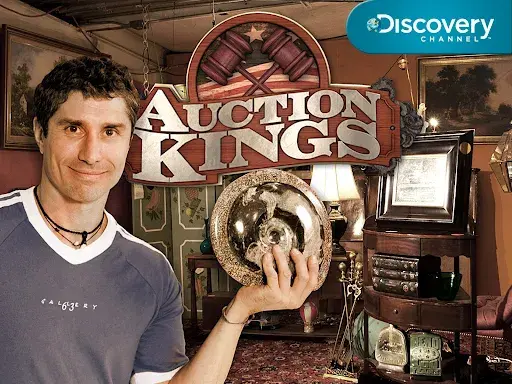Reimagining the Art Market With Shlomi Rabi of Greenhouse Auctions (Part 2)
Greenhouse Auctions is a primary market auction house actively reimagining traditional models. Auction Daily recently caught up with founder Shlomi Rabi. In part one of our interview, we learned the backstory of the auction house and discussed its collaborations with Brompton, Crew Nation, and Cereus Art.
In the second part of this interview, Shlomi Rabi talks about recent changes in the auction industry, how to operate in a fully-online space, and what lies ahead for Greenhouse Auctions.

Auction Daily: You founded Greenhouse Auctions in 2020 amid a global pandemic, widespread social unrest, and shifting industry trends. How did the historical moment affect your model?
Shlomi Rabi: I don’t think Greenhouse would have had much ground to stand on two years ago. There was no interest in disrupting the existing models, there was no interest in building bridges between primary and secondary selling models, and there was, frankly, little empathy for artists. It was only when things were looking pretty grim, sales came to a screeching halt, auction houses had to radically downsize, and small galleries had to furlough practically their entire staff that people realized the way things had been going was not sustainable.
The existing auction model was really structured against the careers of emerging artists and prioritized the venue’s bottom line over any consideration for the artist’s future. No one batted an eyelash when pieces by Amoako Boafo were exploding for up to 30 times the retail price. There are too many loopholes in the current permutation of the auction model that facilitate that sort of outcome, which has been leading to this insane gold rush. Since the pandemic, however, people are a lot more mindful of the impact that has on the artist and the galleries. There is more of a desire to directly support artists, ensure they have a viable runway for their career to take off naturally and land safely— at their discretion.
Since the pandemic, there has been much more ethical and meaningful collecting. This current generation of millennial collectors is really examining every company they do business with. They’re asking, what is your corporate responsibility policy? Do you have a diversity policy? Do you have auctions that empower underrepresented individuals in the art world? Do you have members on your team that reflect the world we live in? It is much more important for these buyers to align their wallet with the ethical structure of the companies they support.

Auction Daily: There are many changes happening in the auction industry right now, from the structure of sales to the content of catalogs. Where do you see Greenhouse’s place in the ongoing conversation?
Shlomi Rabi: I would like to think that we’re learning from other people’s mistakes. I’m not going around saying that auction houses are evil or they should be canceled because, after all, they play a very crucial role in the art market. However, I do think that the auction industry is going through a transition, the likes of which we have not seen in a very long time. I hope that auction houses will be much more ethically-minded in the type of materials they source; in the compensation of artists and the resale of their artwork; and in setting parameters for when artworks can come to auction.
There will always be a need for a secondary market auction model. It’s the only public barometer for the market. Yet what hurts artists is the transparency in auction selling prices, which encourages other people to quickly auction their pieces if the prices handily beat retail— which they often do, for emerging artists. There is complete anonymity of the buyer and seller, which becomes a breeding ground for speculators. I would like to think there will be pressure on these auction houses to engage more ethically. And really, I expect the auction market landscape will look very different in five years. I do think there will be many more digital players that will have equal pull in the art market.

Auction Daily: Most of the industry went online last year due to the COVID-19 pandemic. How has that online experience affected Greenhouse so far?
Shlomi Rabi: For a while there, everything was digital. There was no other way of engaging with art. This is why we incorporated artist videos in our auctions to give bidders the chance to see a piece, hear from the artist, and have a more engaging experience than just looking at a PDF. I do think that digital will remain very strong. It’s not going anywhere just because things are opening up.
Greenhouse Auctions doesn’t have a physical space, but we are still able to engage collectors around the world. The current generation of collectors are all digital natives. They do not necessarily want the pomp and ritual of a traditional auction house. They do not need the brunch and the cocktails. They just want to be able to look at something on a well-functioning website or app and make the decision for themselves, especially if it starts at a more accessible price point.
I think there will always be a love for experiencing artwork in person. But if you buy something online, you still get to experience it in person. You still get to live with the artwork; you get to enjoy it. We’re not really replacing the experience of enjoying art in that way; we’re just facilitating the process of buying it.
Auction Daily: What are you working on right now, and what should we look forward to from Greenhouse Auctions?
Shlomi Rabi: We are working on a very exciting auction this fall that will be curated by K.O. Nnamdie. He’s a brilliant, brilliant curator who was born in Nigeria and raised in Texas and Miami. The auction’s title will be “Higher Power,” and it will benefit educational initiatives for people of color. The benefit auction model will be transformed because the participating artists will have the opportunity to donate their proceeds to the fund. This is a new way to turn artists into agents of philanthropy.
We’re really here to reinvent multiple participation models and offer new ways to feel empowered. From artists to galleries to buyers, we want everyone to feel great about participating in the art world. We have a far greater potential to unlock in the creating, selling, and collecting of art, especially when it comes to building a more sustainable and diverse art ecosystem and powering a crucial social impact initiative.
Visit Greenhouse Auctions for more information about upcoming events and projects, and check out the first part of Auction Daily’s interview with Shlomi Rabi here.









